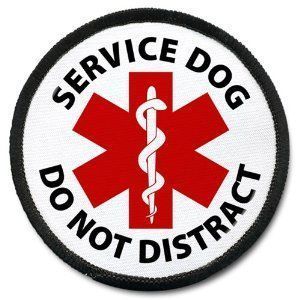Reasons why a Labrador Retriever is the Best

Reasons why a Labrador Retriever is the Best Therapy Dog and Friend
A Labrador retriever is a highly versatile breed which is considered one of the best canine breeds trained as a therapy dog. They are hard-working breeds with an extraordinary intelligence that makes them good candidates for training to become proficient in the demands of a therapy dog’s nature of work. A Lab is also known for its friendliness and sociability. Its sunny disposition makes it an excellent family dog.
The job of a therapy dog entails visiting hospitals, rehabilitation facilities, and mental institutions, schools for special education, nursing homes, and convalescent homes where patients often feel alone and depressed. Even victims of natural and man-made calamities have also benefited from the friendliness and unconditional love that only a Labrador retriever can give. A Lab therapy dog is trained to bring light inside the walls of these institutions and bring smiles and encouragement to the residents. Patients will always look forward to these visits for a therapy dog can provide unconditional affection, comfort, and entertainment to anyone who needs it most.
The requirements to become a therapy dog is rigid and the training rigorous. A therapy dog must be highly sociable because he will be dealing frequently with people. A Labrador retriever fits right into this qualification. Labs will continually seek human companionship and affection and will try their very best to please their master and other members of the family. While their friendliness is a given, they are trained to get used to dealing with people on wheelchairs, crutches, or canes and to behave appropriately in the presence of other dogs within unfamiliar environments. Proper training is very important to enable the dog to adjust to any situation such as strange noises, the presence of other animals, new people, and even learn tricks to keep the patients amused.
A Lab’s temperament makes it an excellent candidate for therapy dog training. People may try to handle them clumsily but a good therapy dog will have utmost patience and tolerance not because they will be punished but because they enjoy human camaraderie.
A Lab must be at least a year old before he can start training to be a therapy dog. He should earn his Canine Good Citizen Certificate as well as an AKC obedience title or a certificate that it has successfully graduated from a training club.
Another pre-requisite for a good therapy dog is complete immunization against important diseases like rabies, leptospirosis, parvovirus, distemper, hepatitis, and para-influenza. It should also be free from internal and external parasites and undergoes regular worming and fecalysis. A Lab which is used as a therapy dog should be subject to annual complete physical examination and deemed physically fit to tackle the demands that being a therapy dog entails.
As therapy dogs, many Labrador retrievers have touched the lives of nursing home residents and patients. The companionship and unconditional love that they share enrich these people’s lives. Patients will always look forward to visits from a therapy dog. A Lab’s sunny disposition is infectious, radiating to every person it comes in contact with. The Lab’s gentleness and outgoing personality make them perfect for chasing away the loneliness and depression that often clouds these patients’ everyday lives.
Training of therapy dogs capitalize on a Lab’s affectionate demeanor. Training channels a Lab’s desirable traits to enable them to shower affection and comfort to people that need them most.
Therapy dogs spend only a few hours with patients during visitations but they can create an impact on their seemingly dreary routines. Since Labs love to be with people, the time that they spent with patients can certainly enhance the bond of friendship between dog and man.
Therapy dogs are not service or assistance dogs. They do not provide help like service dogs; rather they are trained to deal socially with people. On the other hand, service dogs are trained to provide assistance to their owners who may possess special needs.
When a Labrador retriever becomes a therapy dog, it needs to be registered or certified by recognized therapy organizations. A handler is responsible for training and bringing their therapy dog to various healthcare and educational institutions which have invited them. However, it should be stressed out that therapy dogs have no legal rights. These therapy dogs participate in activities which are classified as Animal Assisted Activities (AAA) or Animal Assisted Therapy (AAT).
(Article from Just 'Labradors.com')